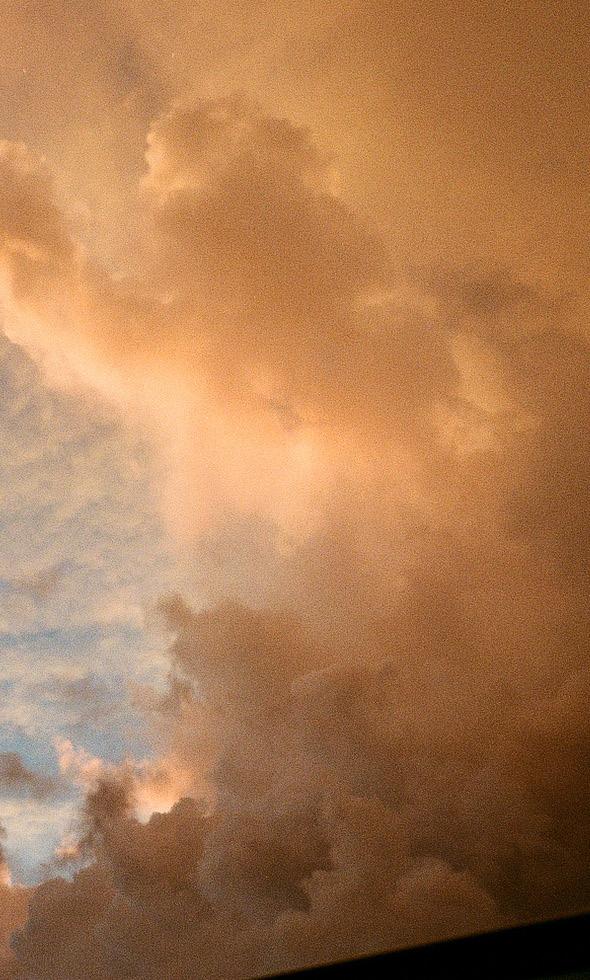letter from the editors

During the pandemic, the Nueva Literary Magazine slowly faded away. As a whole, the support system for the arts fell to the wayside. However, throughout the past year, we have been working to help revive this scene, creating spaces for artistic communities that review, construct, and celebrate all forms of art. In creating this edition of LitMag, we focused on this idea of rebirth. Based on “rebirth”, we chose to start over at issue #1. In many ways, we regrew LitMag from the ground up. Although it bears the same name, we took this as an opportunity to answer crucial questions about the continued development of LitMag.
How do we make LitMag fit the current Nueva population? How might we inspire students to submit? How can we best share the magnificent Nueva art? All of these questions were central to this latest issue. We hope this issue provides a genuine look into the current iteration of Nueva arts and serves as a snapshot of the growing artistic landscape. Additionally, this issue is named the first as it will be followed by later issues, in which we look forward to reading, celebrating, and sharing your future work.
Thank you so much to all those who submitted, saw a poster, or talked about LitMag. Thank you to the club members for your continued dedication, thank you to Mia for the brilliant design, and thank you for simply reading our work. Finally, we would be nowhere without the incredible support of Amber Carpenter and Jen Nuebauer. Thank you both so much for your advice, support, and mentorship. We hope you enjoy our magazine as much as we enjoyed creating it.
Until next time, Sebastian, Grace, and Milo page
letter
2
Tales From the Inner City
By Grace E.
Jessie was pink. Light, but her layers were electric. She was wind and earth and fire and water, acrylic paint in every color, too bright for the world’s canvas. Nothing, no one, could ever be enough canvas for her.
Marc never knew pink. All he had ever known was gentle black, the shadowed room, trees that loom, casted gloom. Light was lazy, it dragged its feet through the lonely glass pane. Or maybe it really was trying its best, for the window’s full-time job was cleaving.
Lou had been every color. His body, crystal clear and empty as the wind, was a vessel. He was everything and nothing, everywhere and nowhere, everyone and no one all at once. He was whatever background wanted center stage. Whatever thing wanted to take up space. Light was too eager, speeding on the highway to hell. Passed right through him, illuminated nothing but his ghostly, spotless clear. He’d been stolen from himself. How do you steal hollow?
Jessie was eleven when she met the cat, a year after the acrylic bottle punctured, the pink, the electric, started leaking. Named him herself, even. George the Giant Cat, since he was twice her height. He was hers, she was his, they were each other’s. Now: He protects her from creeps and boiling vats of oil. Keeps her afloat. She feeds him scraps of mango.
Marc decided to wander one day. He was tired of hoping the light would penetrate the wall. Walked and walked for hours through the trees, menacing in their melancholy. They multiplied, refused to end, to cease. They became his cage, his very own horror house of mirrors. A cage missing its borders. Well, all but the one that mattered.
Lou finds color particularly interesting. Everything we look at, every object and inking, is every color but the one we see it as. So really, orange and yellow and blue and red and green and purple and pink are everything but themselves.
*
*
Jessie’s losing her pink. She’s out at sea now, waves of black crashing over her, washing it away. George is having trouble keeping her afloat.
Marc is back at the window. He wonders if maybe he can crack it. He doesn’t want to try. He wants to keep his hope.
Lou is visited by a boy today. One might suppose he’s a bit large in stature, towering over the telephone poles. The boy reaches out for him and picks him up. Lou is surprised when his hands don’t fall through. The boy carries him for a while, through the city, past speeding cars, bustling crowds, towering buildings with their rude lights. They reach a dark corner of the city and the boy sets him down. There’s a shiny panel leaning against a shabby old fence, and the boy brings him up to it. A mirror, Lou thinks, there’s me. He looks again, really looks. There’s me. Seeing himself was seeing every light, every color in the city. He is everything, everywhere, everyone. He shines.
Suddenly, Jessie is warm. The black calms, lessens its roaring anger. New light sends it hissing away. Cautiously, George begins to creep towards the shore, sure the water will come surging back any second. It doesn’t. His fur dries. Jessie clings to it. His ears turn pink in the light.
Marc has fallen asleep next to the window. A burning heat wakes him. He is annoyed. He hadn’t particularly wanted to wake up. His eyelids flutter open to see the window. Light shoots through it, piercing the glass, the endless trees. It punctures the window pane, a clean hole through. The glass, the cleaving, is melting away.
Lou steps away from the mirror. The light gathered in him is burning him and he lets it. He wants the scars. They are his, of becoming whole.
*
page 4 writing
Slivers of Souls
By Alice T.
surrounded by soulful singing, she rests her head on my shoulder & i shiver
slivers of tears escape under my mask & i keep them
lock them away hidden from preying eyes.
my soul pulses out of ribcage & i ask for stillness
i fold & fold myself into a thousand paper cranes, praying for perfection, but bursting instead.
blinkered little world shattering every time i reach for the last.
she withdraws from the crook of my neck, brows-creased & doe-eyed when she deadlocks
my shielded eyes. i shift my glance from
her searching stare, & i let the salten-droplet fall.
hawk-eyes lick after the glimmered trail that disappears at the edge
of echoed promises & impressionable bruises. so i darken my sight & drown into the sanguine sounds.
“The Headless” Inspired by The Headless Man by Diane Arbus
By Noah S.
I lost my sight that night when she told me, Rush to the boat away from scalding, welded shells to shells of salt and sting.
Her face Picassosed with passionate color, the thick paint smearing on the canvas edges. At last, the only image in my mind was that painting stapled to my forehead which blinds me
I lost my mouth that morning when a copper sentinel greeted me in a new home.
Held at the pinch of my core I rallied the coins in my pocket but the man behind the tile counter painted my teeth red and stuffed my mouth with pennies.
I lost my hearing at supper when the cafe owner pitied me. She prepared a helping of canned beans and roasted sausage cuts while we spoke of woes. Her voice collapsed the cavity of my ears. I refused to hear anything else except her song.
I lost my nose that afternoon. The smoke was too much to bear, sweet and sticky like molasses; strings of sugar coated the walls. Melting it away. She melted too. Caught by the hairs of the painter’s brush. And I ran just as I was told.
page 6 writing
Iranian-American
By Kian S.
If you meet an Iranian, you will be surprised by our warmth. We will always be the ones to come up to you first and introduce ourselves, you will have an almost friend-like conversation, and before you know it, you will be invited to dinner at our house on Saturday. You might be the type of American who wonders why we make so much food that there is enough left over for a whole other course but barely eat any of it ourselves. But you do not know that hospitality is at the center of Iranian culture, you do not know that having no food on the table is an Iranian host’s worst fear, and you do not know how restless an Iranian feels until their guests are comfortable. Have I given you the impression that this custom of hospitality is not unlike any of your efforts to please your guests? Well, that is so.
You might see that we celebrate Thanksgiving, Halloween, and Christmas, but you may not guess that we also mark out calendars for Chaharshanbe Suri and Nowruz (Persian celebrations of the new year). During a particular week in March, if you look, all you may see are people jumping over small bonfires, placing an assortment of food and grass on a table, and being excessively kind and generous. But what I see is a people, of whom I am just one, drawn together by tradition and love. As we jump over flames on the eve of the last Wednesday of the Persian calendar year, we sing, sorkhi-ye to az man, zardi-ye man az to (let your fiery redness be mine, and let my sickly pallor be yours). As we set the Haft Sin with the seven items that each symbolize a virtue for the coming year, we revel in one another’s presence and give thanks in our hearts to the power that brings us together. As we treat others with compassion, we walk away with a full heart, believing that our actions at the beginning of the new year will bring us joy and prosperity for the rest of the year.
In second grade, I presented to my class on Nowruz and its significance in Iranian culture and was met with curious faces and eager questions. A classmate of mine even asked if he could celebrate Nowruz with me, to which my second-grade self responded, “sure, why not!”
Why not? Well, you might say, I am not Iranian, and it is not my culture. But is it so much a celebration by one people and one culture as it is a celebration of a people and a culture? You might say, I do not know the meaning behind the tradition. But can you not learn to embrace cultural differences, and with an open mind, find that in essence, both Nowruz and New Year’s celebrate a new beginning? You might say, I am not in Iran and it will look foolish. But are there not other people like you who want to join the festivities but hold themselves back out of misguided fear? Because when you, an American, hear of Iran, you may think of nuclear bombs, terrorists, and conflict. But these are not the stories Babayi (grandfather) tells us. We sit around the table, having finished our dinner on the eve of Nowruz, and Babayi begins.
He starts (in our native tongue, Farsi), “tonight I will read you a poem written by your great-aunt Simin Behbahani called My Country, I Will Build You Again.” Babayi loves talking about Simin, who was a champion of free speech and women’s rights through her emphatic and heartfelt poetry. The Lioness of Iran, she was called. Twice nominated for the Nobel Prize. But as I sit listening to this poem, a question bubbles up to the front of my mind: to which country do people like me belong? Immigrants, living on the edge of two worlds, having only one soul to dedicate to dual identities.
page 8
The Iran my parents knew, the Iran that Babayi fondly recount memories of, is not the Iran you would see now. That Iran no longer exists, but it also exists everywhere. I am Iranian-American, but when you take away those two titles, I am just a human being. So, too, are you. We celebrate the differences between our identities, but sometimes we forget that we share the name of human, something to be earned and treasured. As the famed Persian poet Saadi wrote, “Human beings are members of a whole, / in creation of one essence and soul (Shirazi).” This poem hangs on the walls of the United Nations headquarters as a symbol of international unity and a shared identity, of which Iranian and American are only two faces. writing
Coming Home
By Sebastian J.
Coming home, you open the door. Hesitantly, like you always do. The apartment still feels foreign to you, with its browns and pale greens providing little color. The light trailing in through the door - cracked open just enough to allow your head to peek through - illuminates something. Something red, glowing, its color and shape in stark contrast to the bland, box room. For the room where you sleep looks like an artist gave up after finishing the rough composition and simply filled in the boxes and other basic shapes. The bed, a box. The nightstand, a box. The lamp on the nightstand, a box on a cylinder. But anyway, back to the red something glowing in the middle of the room. Glowing and growing, by the looks of it. For in the middle of the room of which you are only legally the owner, rests a little plant, brown stem hardly longer than your middle finger. But it is not the stem that attracts your attention, no; it is the leaves, which shine a vivid red, color so great you cannot tell if it's actually emitting light or simply providing an illusion because of the intensity of its color. You simply must know, you want to close the door to check, but you stop. You worry, what if by the time I reopen the door it is gone? What if the darkness smothers its light? So you simply sit, watching, scared to look away. The leaf's shape reminds you of maple, the kind on the Canadian flag. "But Canada is not home." Then again, neither is this.
The world will end in 2050.
By Margot S.
July 26th, 2050
Elliot reaches into the shopping cart and pulls out fish after fish. Tuna, salmon, canned sardine, packaged cod, flounder and mackerel, shrimp and others alike. Then come the plants. Iceberg cabbage, romaine, leeks, baby carrots, one after another. Finally the meats, beef, ribs, and poultry. The cart is gone from its plentiful contents.
But he doesn’t do that, because nice things like those don’t exist anymore.
Elliot reaches into the shopping cart and pulls out an oxygen tank. Size small, medium, and large for if really necessary. Then comes the freeze dried food, and the masks, and the life vests.
“Do you need a bag for ten cents?” Asks the cashier.
“Yes please,” Elliot responds.
He didn’t bring the reusable ones, I think.
Vexation, like nails against a chalkboard, forms in my throat, but nothing comes out. He’s just a kid. It doesn’t come out- but a ball of my spit does, as I begin to cough violently. I adjust my mask and pinch the tube to check for any holes. The contraption is intact.
On the drive home Elliot tells me all about the ant he found with his friends.
The ground starts to rumble as soon as I park. Elliot lets out a yelp, and my hand instinctively shoots back to grab his shoulder. We wait it out together, because it’s the best we can do. I tell him it’s going to be okay, but I don’t know if it is really. He’s all I’ve got left. The shaking comes to a stop and we run inside.
Tucking myself into bed my mind starts to race infinitely. I need to ground him for forgetting our cloth bags. But what about the earthquake, what if he’s traumatized and I just make it worse. But he should know better. I can’t ground him, I want him to experience everything, even if little, that the world has to offer.
page 10
*
writing
I wonder if God really exists. If God could show my Elliot everything this world once had to offer. If he looks down and shakes his head at us at night, taking his slippers off and placing his feet into clean water. Maybe he even laughs a little because, how piteous and plaintive we all look, scurrying around like bugs trapped in a cup. Or maybe I’m twisting it and he tried all he could but bad things happen to good people and good things happen to evil people.
2042 was the year it all went to shit. I remember heat waves, people screaming, more ambulances in the streets than cars, and smoldering concrete. It looked like straight out of the purge. I remember holding baby Elliot, and praying to God even though I didn’t and don’t believe in God, but now I hope he exists.
Can I make a deal with you God, am I allowed to do that? Dear God, could I do it all over again? If I behaved better would you spare Elliot and show him all that he missed out on? God, did you know I tried my best but I couldn’t decide if politicians believed in global warming or not? If I tried even harder, prayed harder, would you give us one more chance? One more year even? If I died for you would you let Elliot see a tree? And would you tell him he reminds me of one? That he’s the only tree I’ve got left, and although the world is dying on its own I’d trade the world for him anyday?
Gray light floods my pupils as I slowly wake up. Oddly enough, Elliot isn’t up and shuffling about like usual. I give myself permission to lie down for a bit longer. Is he tired maybe?
Everyday is scorching hot but today in particular is bad. I make up my mind and attempt to move but my limbs don’t budge an inch. I wonder if God took my deal? Did he kill me so Elliot could finally touch a tree? I wonder at what point humanity went wrong. And I wonder at what point bringing a beautiful baby into the world became praying everyday he wouldn’t die from heat exhaustion and why did I even bring him into the world because it is all over soon anyways.
A rare breeze slips inside the window, one that isn’t ridden with sand and smog. I take it as a sign to get up. Three steps later and I sit on the stone stool by the wall.
*
*
It’s been more than ten years since I could look out the window and see a pretty bird chirping on a maple tree branch, dewdrops carefully rolling down shrubbery. When once the sky seemed an infinite baby blue, and sunlight became the death of cold hands not the death of our planet.
Piercing through the air is a shrill scream, making me jump. I close the window out of worry, because desperate times call for desperate measures so robbings and murders aren’t unusual anymore.
The TV turns on on its own, making me jump out of my skin once again. Gray floods the screen, as if I don’t see enough of that outside everyday. Bright red letters flash suddenly on the screen, displaying “MANDATORY EMERGENCY ANNOUNCEMENT”. A disheveled newswoman appears on the screen, a sight horrible enough I feel like puking. Her skin is crackling, peeling. There are mounds of bodies behind her, blood streaking her tarnished clothes.
“ATTENTION, WORLD,” she hoarsely lets out. “BY MANDATORY ORDER EVERYONE MUST TAKE COVER IN THE NEXT MINUTE, NO EXCEPTIONS. WE BELIEVE THE END IS NOW. DROP EVERYTHING AND FIND SHELTER IMMEDIATELY. THERE ARE NO MORE RULES. DO WHAT YOU MUST”.
The broadcast cuts out as the earth begins shaking with relentless force, stronger than ever before and I’m knocked down to the ground. Craters of crackled stone burst out of the ground like mini volcanoes, sizzling chunks of rock flying everywhere. I flinch as unbearable pain explodes in my head and over all my body. I need to find Elliot. I pick myself up and run like a madwoman, bursting into his room. He’s in bed, lying still. I shake him hard, but he doesn’t wake up. I shake and shake and shake but he doesn’t move. I tug on his arm and I scream and yell at him until I can’t even hear myself anymore.
I put my head on his chest as a last resort. Alarms are blasting, explosions reverberate for miles. The sound of Earth rearranging itself and destruction of mankind. Groans and screams, wailing, the thump of bodies hitting the ground. But the silence coming from Elliot’s ribcage I can hear louder than all.
I pick up his limp body and stagger back over to the stool.
“Elliot. Can I tell you something? It’s really rare nowadays, maybe they showed you a picture in school. It’s called a tree.
page 12 writing
They’re what lets us live everyday, you know? They’re what make oxygen. And the good kind, not the kind you breathe from a tank. Some grow tall, taller than you and I. They’re bigger than just you and I, Elliot. You can’t even see the top sometimes”.
I look out the window one last time. Thick dust fills the sky, sand blowing all over. Skyscrapers surround the neighborhood, though no longer standing tall and glorious, now lying in rubble contaminated with flesh and limbs. The piles of concrete and bodies form a ring of destruction. The sky is an ominous ashy orange, stained with gray.
I see a pitch black cloud moving in our direction, miles away yet minutes from obliterating everything I once knew.
Dear God, you didn’t listen to me did you? There’s nothing you could’ve done? Was it me?
Actually, thank you Earth. Thank you for sparing Elliot from the pain coming for me now. You’ve really had enough of us haven’t you? I know you’re doing what’s best. Even though we caused it.
I don’t know how you’ll make me die, will the heat get to me first? Or will it be an explosion, or maybe the black cloud?
You know it all right? You’ve been abused too much, but will you make sure of one thing? Is it too much for me to ask for a favor?
Will you let the fragments of Elliot and I scatter to every place in the world, in every crevice and plain that exists?
So that maybe after this disaster, after this bad dream, once the ground has settled and the winds die down, the seeds of our souls and bodies can sprout once again into a beautiful tree?
By Grace C.
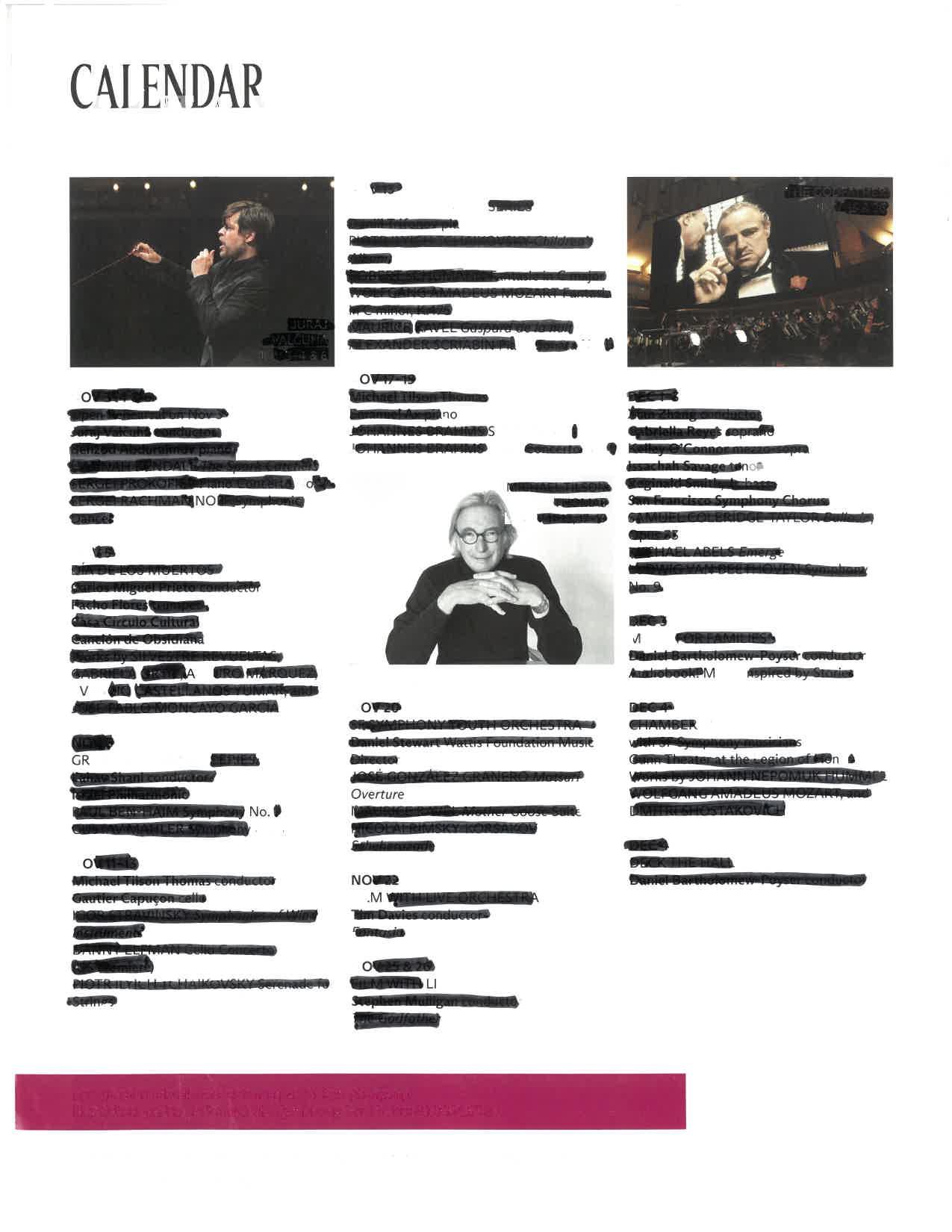
NO NO NO
page 14 writing
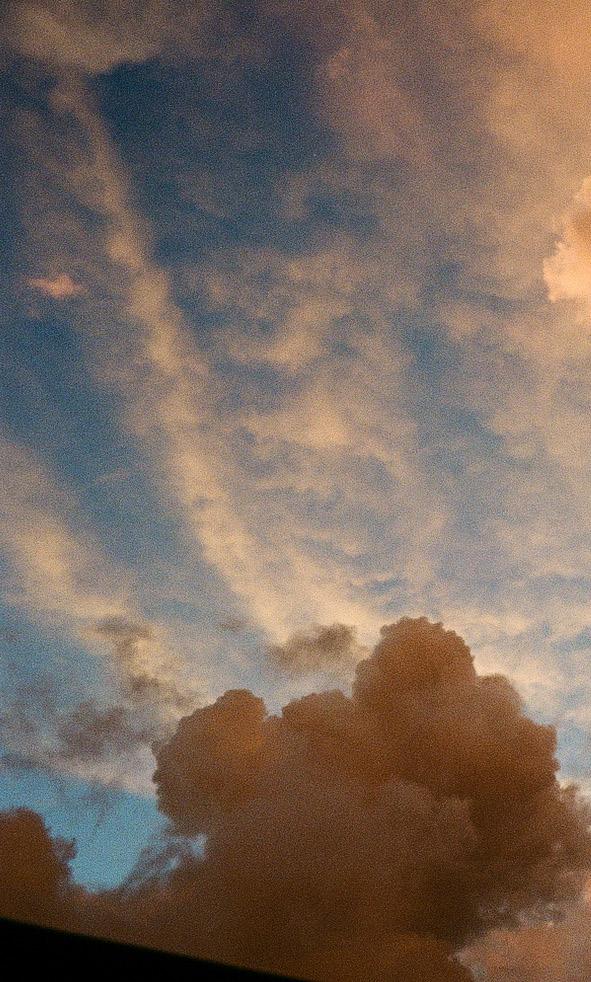
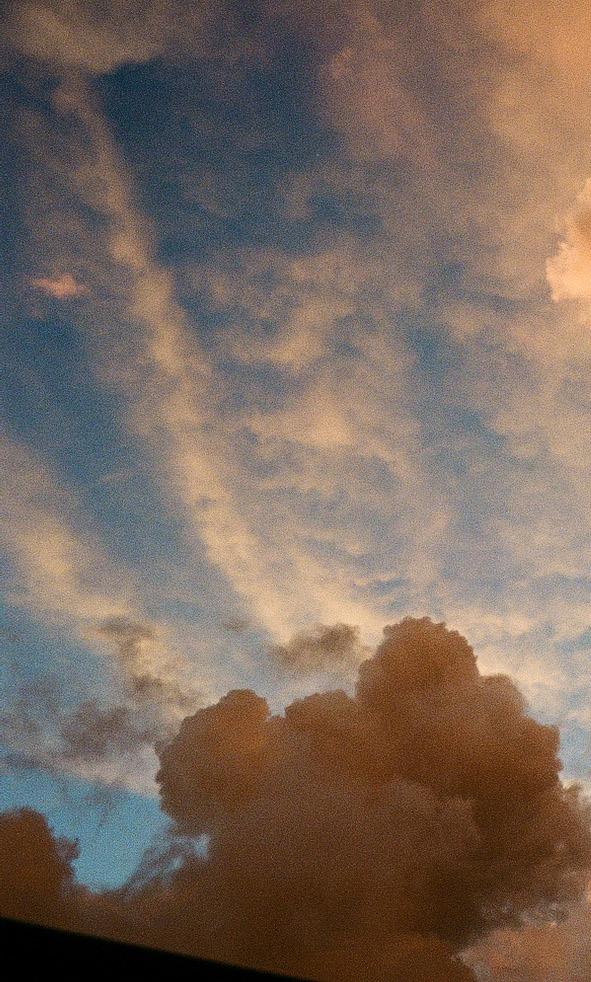



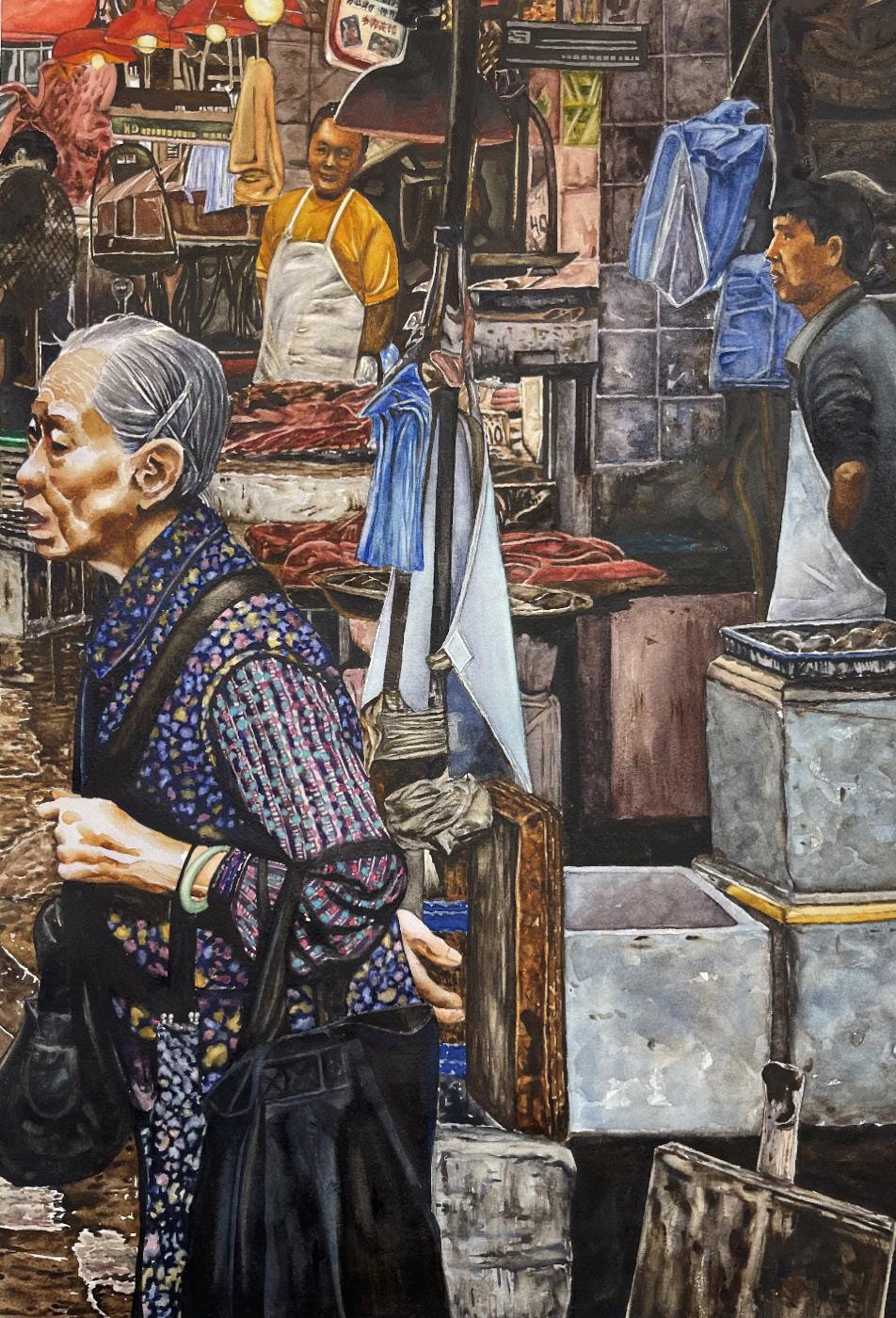 By Rachel Y.
By Rachel Y.
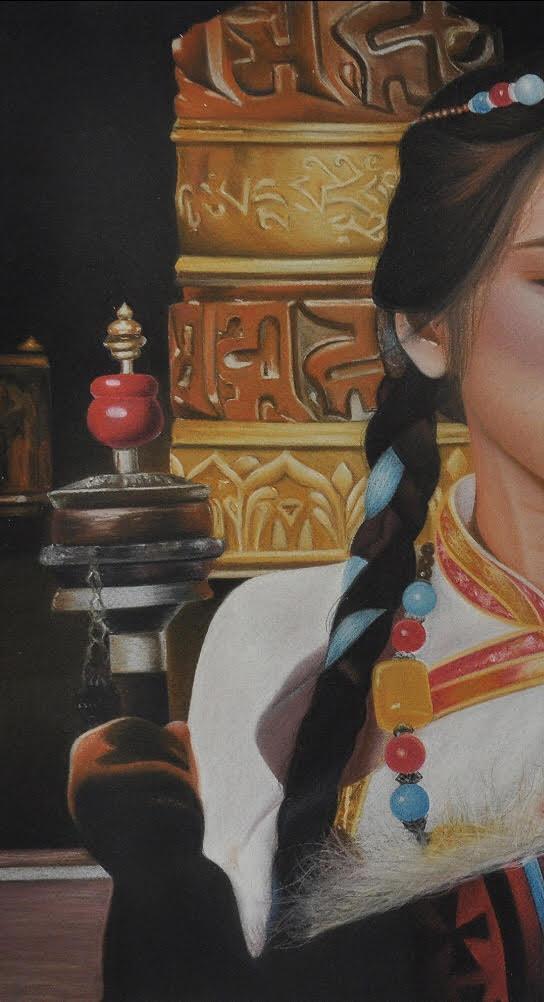
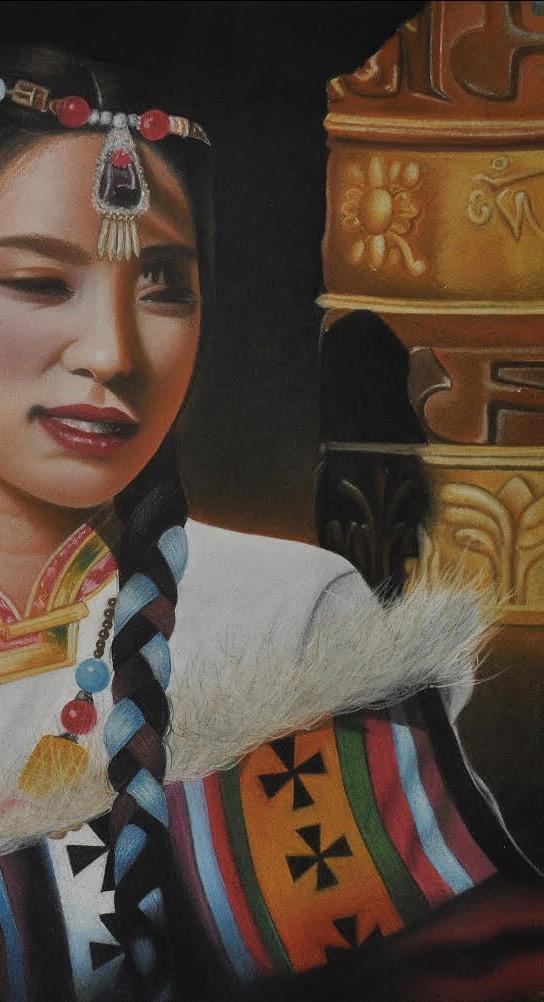
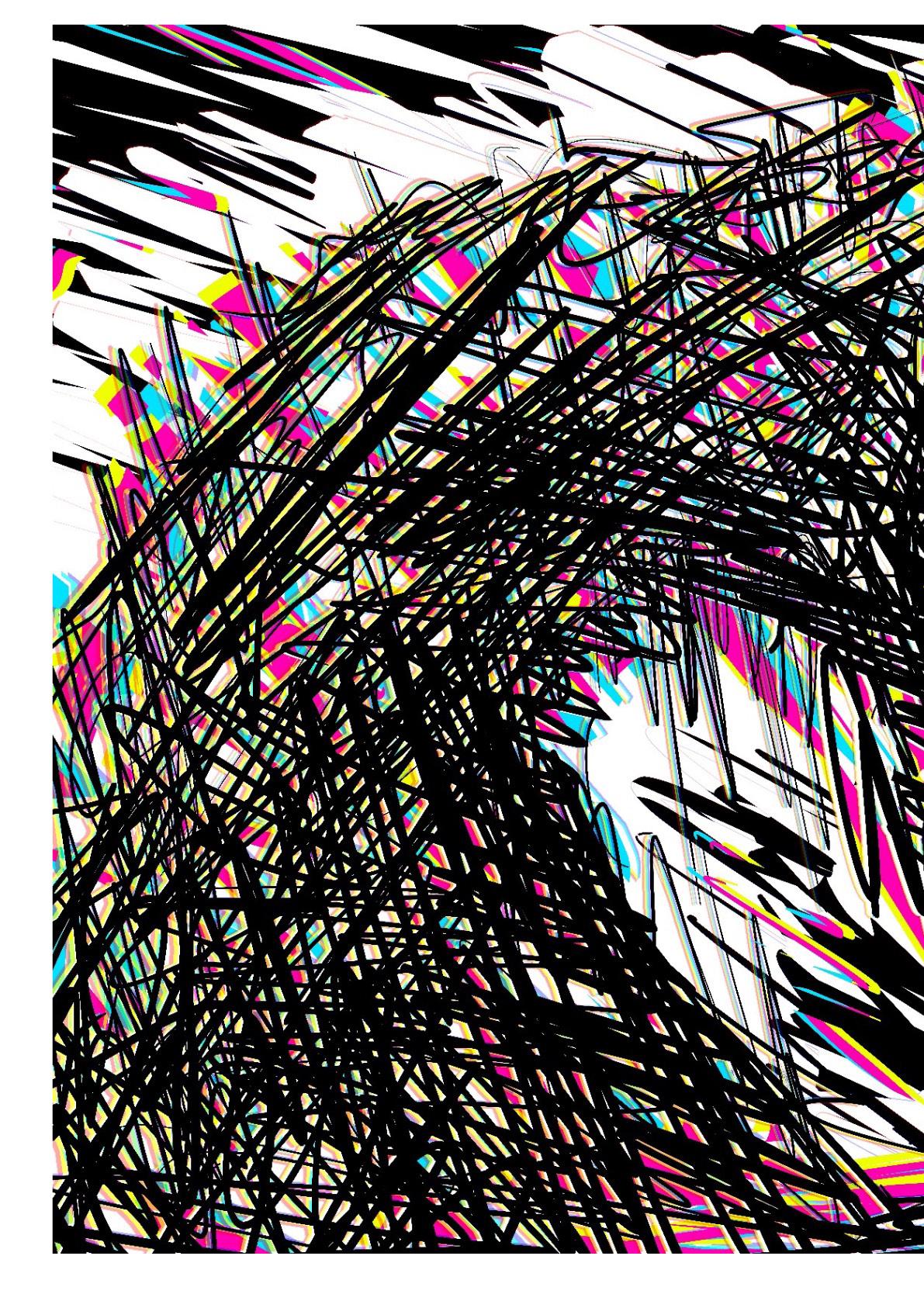
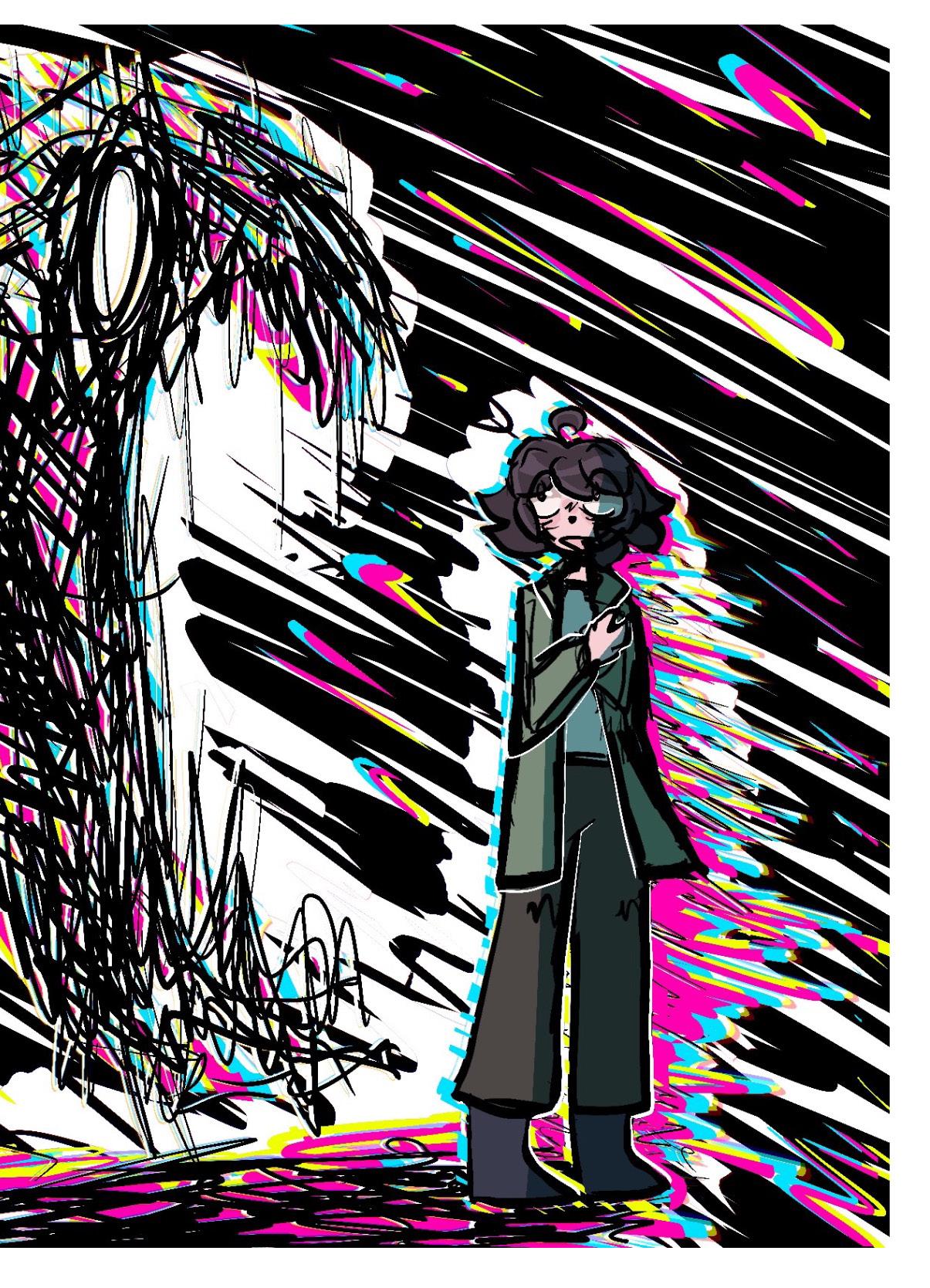 By Senya S.
By Senya S.
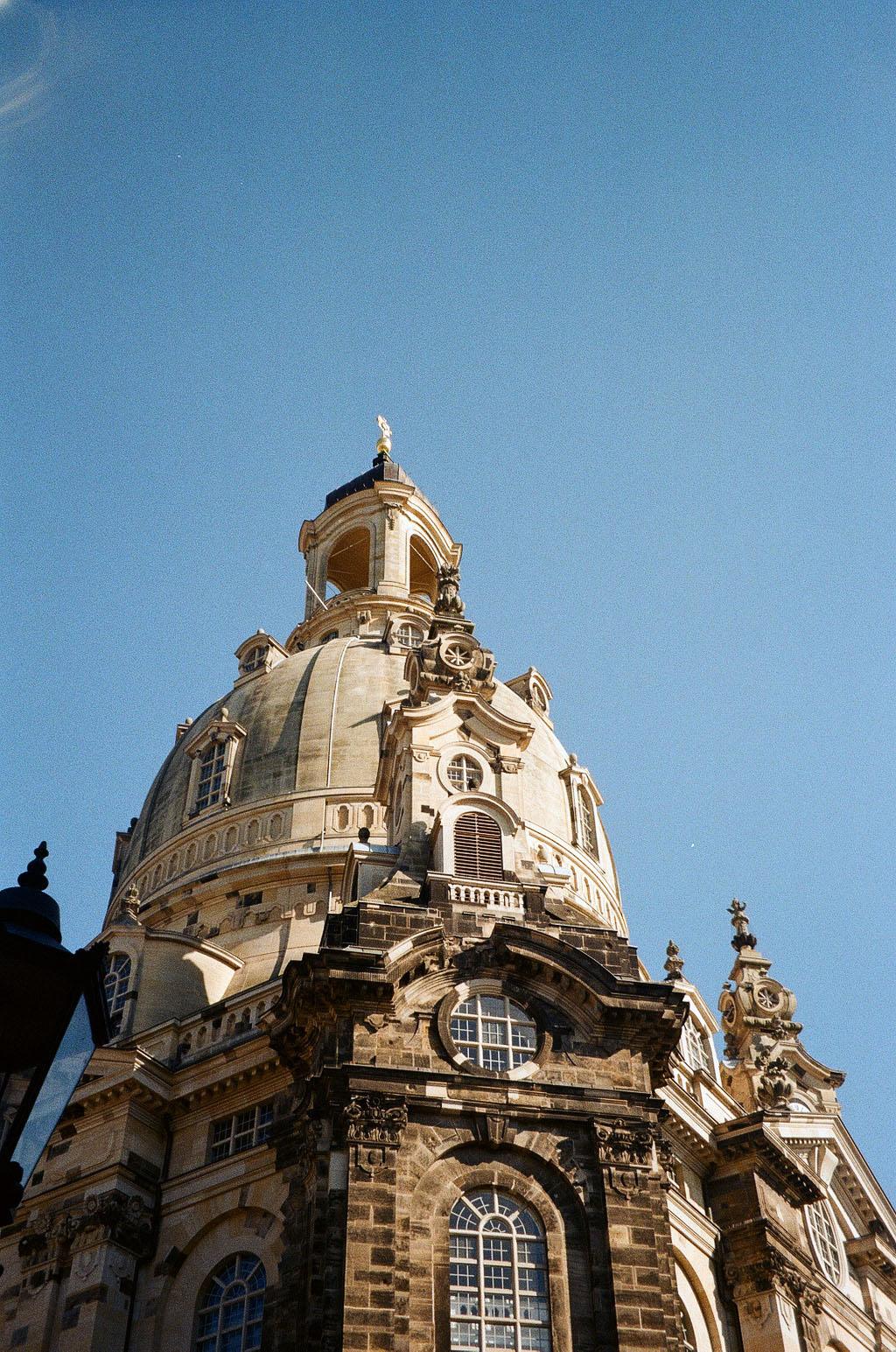
 By Christine Z.
By Christine Z.
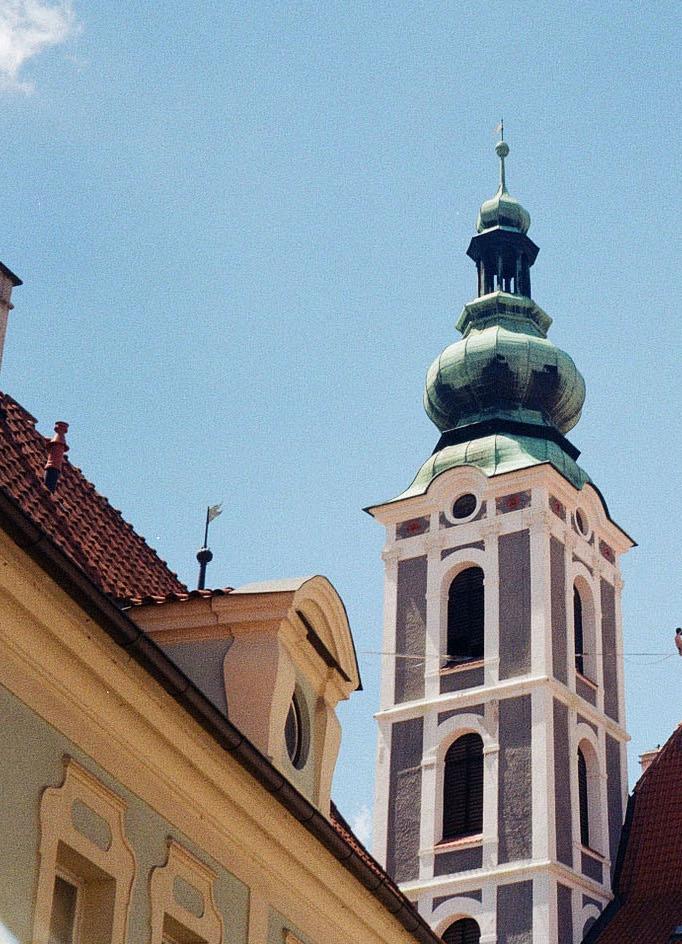
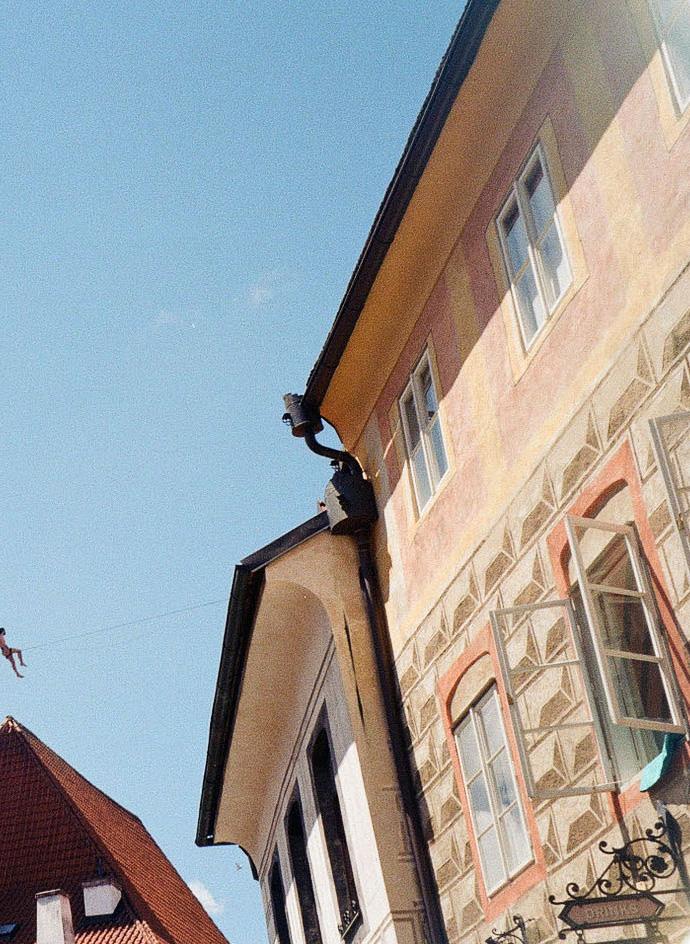 By Christine Z.
By Christine Z.
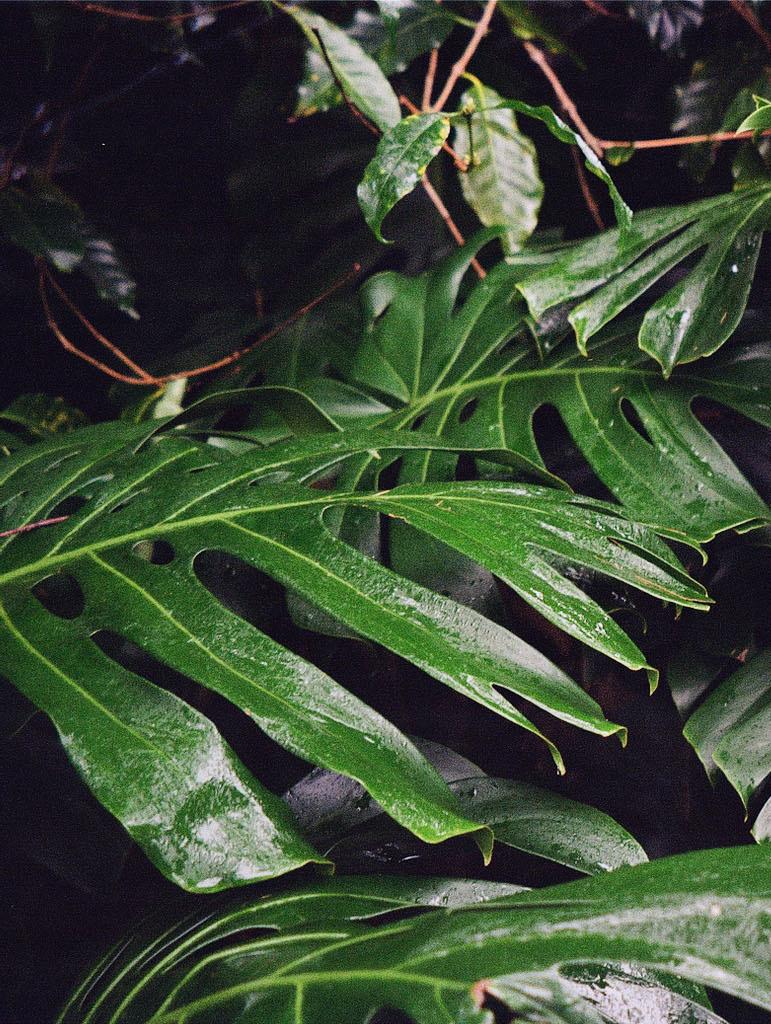
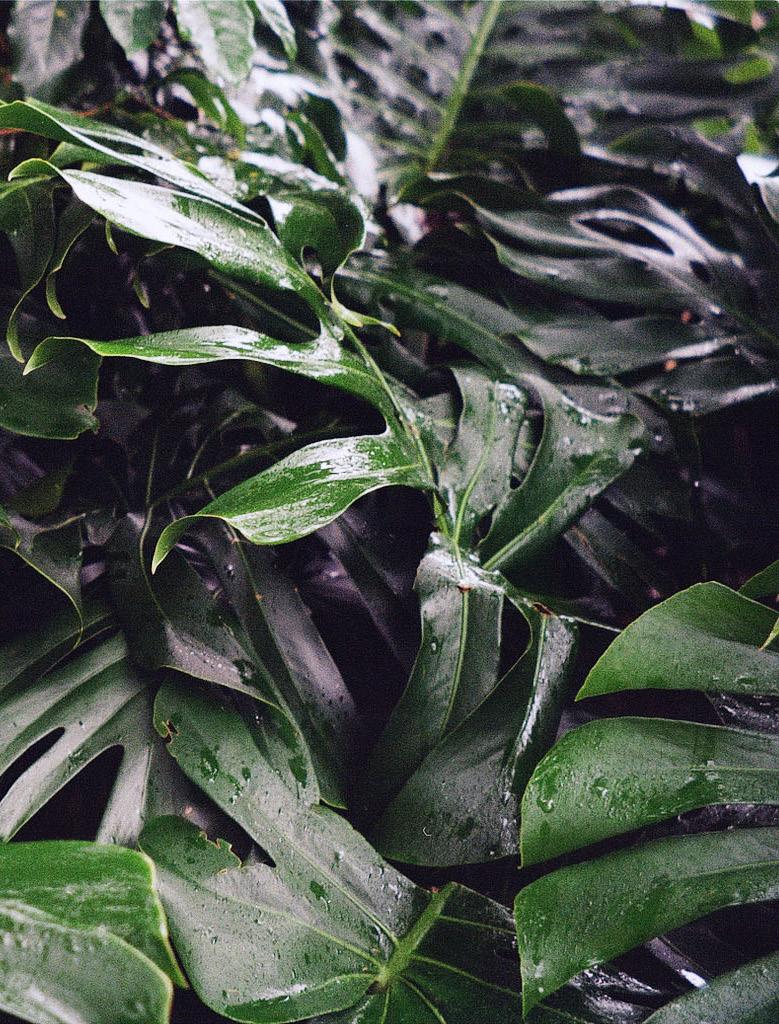
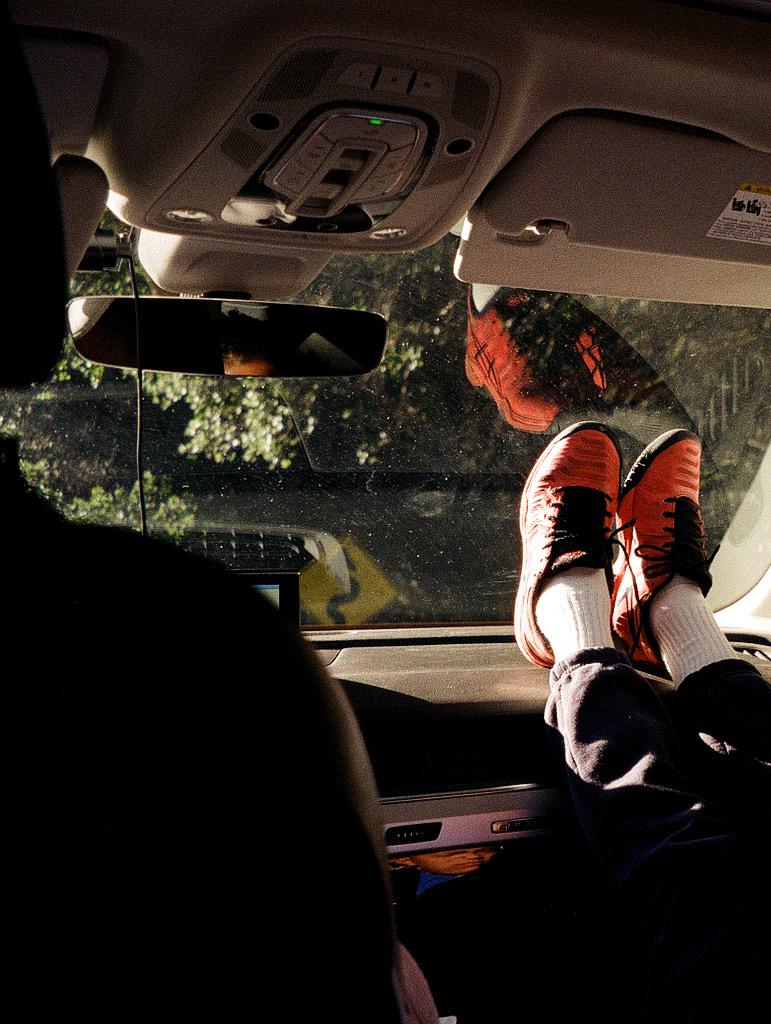
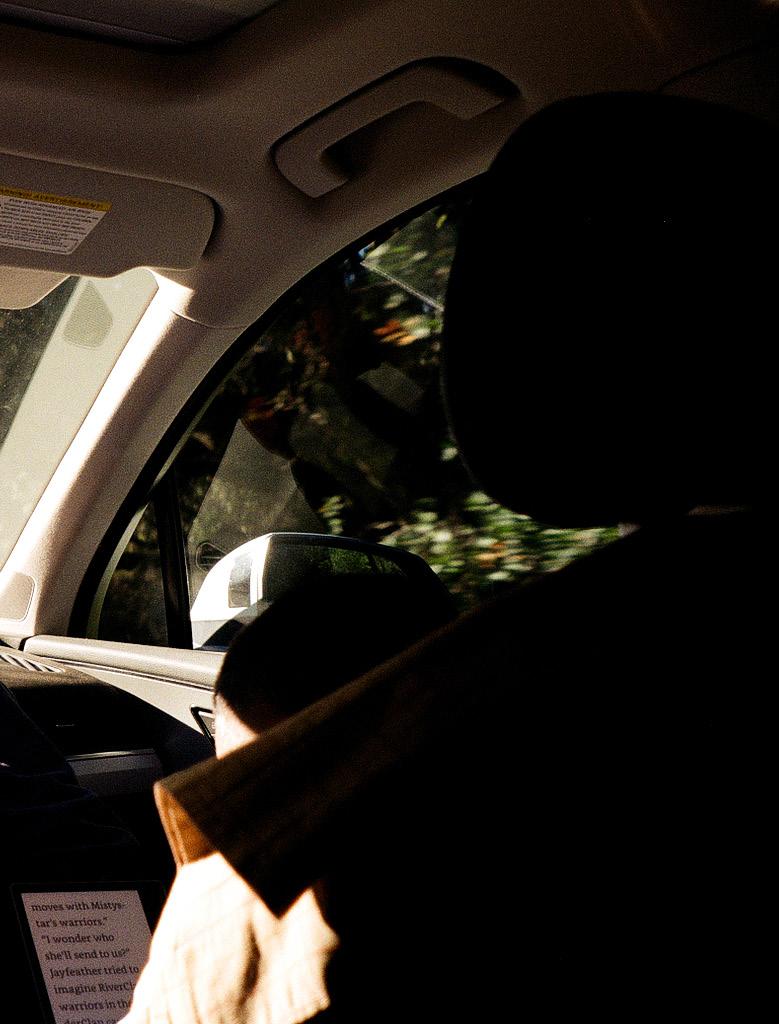 By Christine Z.
By Christine Z.

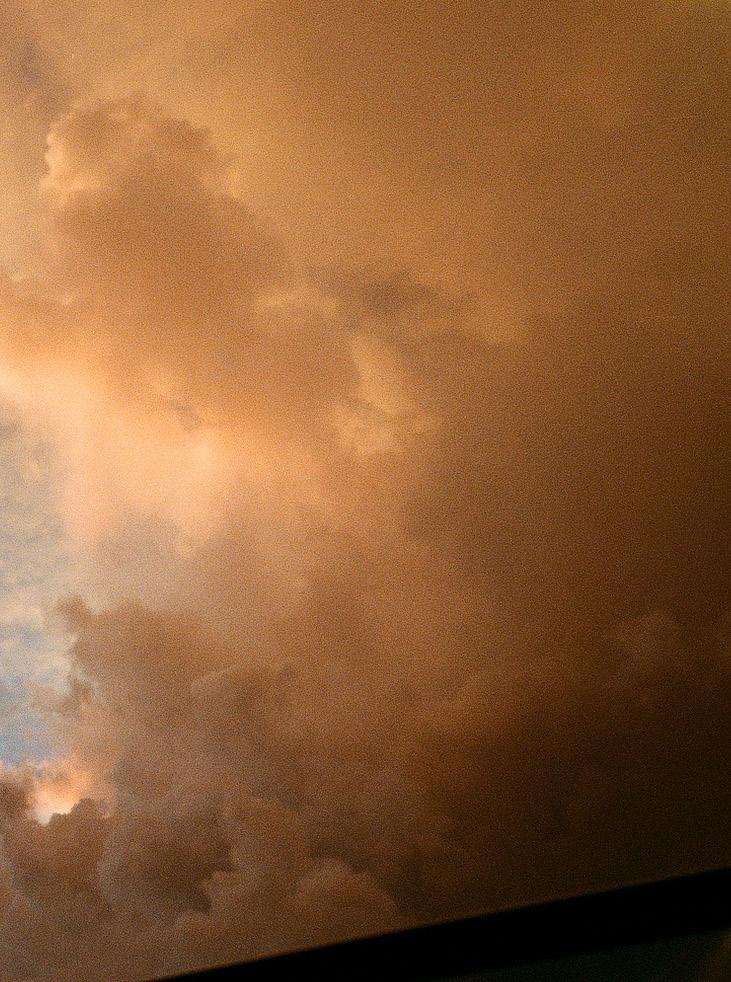 By Christine Z.
By Christine Z.
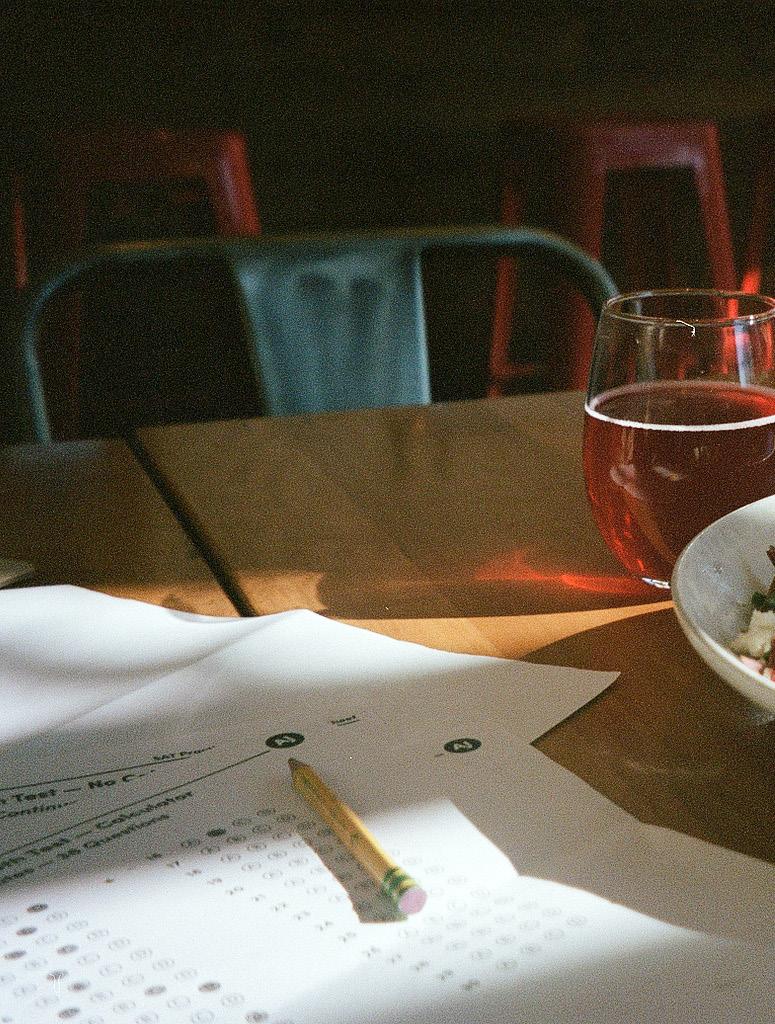
 By Christine Z.
By Christine Z.
